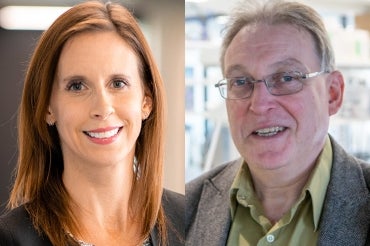Medicine by Design and H2i form partnership to support entrepreneurs in regenerative medicine

Published: January 21, 2021
Graduate students and post-doctoral researchers who want to translate regenerative medicine research or technology into a product or venture can now take their first steps toward becoming an entrepreneur through a new University of Toronto program.
Building a Biotech Venture is a new program for trainees in Medicine by Design-funded labs and is being offered in partnership with the Health Innovation Hub (H2i), a campus-linked accelerator at the Temerty Faculty of Medicine.
The new program kicks off on Jan. 26 with an information session and program overview. The session will be followed by a workshop and mentorship for the ventures throughout the winter and spring and culminate with a pitch competition, with the winning team set to receive up to $25,000 in funding to advance their product or venture concept.
“We are excited to partner with H2i to offer Building a Biotech Venture as part of our commitment to ensuring Medicine by Design trainees have opportunities to develop the skills they need to translate their research into innovative products and companies,” says Allison Brown, director, strategy translation, at Medicine by Design. “This program is uniquely positioned to help the next generation of regenerative medicine researchers and entrepreneurs successfully build a concept into a tangible business opportunity, with mentorship and education every step of the way.
“We expect a range of starting points from participants – from those that are already working in a team on a venture concept, to those with an early idea and keen interest in advancing that idea toward a compelling business opportunity, which this is something that H2i has experience with.”
One of the main goals of Building a Biotech Venture is to prepare Medicine by Design teams for more advanced incubators like the Creative Destruction Lab (CDL), another Medicine by Design partner, where they can connect with investors and venture funding opportunities
In addition, the program will help develop entrepreneurial talent that is in high demand in Toronto’s booming biotech space. The program also accelerates Medicine by Design’s strategic goal of bridging a critical gap between the early-stage transformational research that Medicine by Design funds and company creation.
Trainees who go through the program will build their idea into a tangible product concept. They will think about how their research could be made into a product or business, developing a product or company story and learning to communicate that story effectively by building a business case and pitch deck. Trainees will form teams as the program progresses and will receive mentoring and guidance from industry experts throughout the process.
H2i, which focuses on early-stage entrepreneurs, is well-positioned to partner with Medicine by Design given its track record of success in supporting health-centric companies.
“We are looking forward to working with Medicine by Design-funded trainees to provide education, mentoring and support,” says Paul Santerre, director of H2i and a professor at the Faculty of Dentistry and the Institute of Biomedical Engineering. “Since its inception in 2013, H2i has supported over 250 companies from more than 15 faculties across all three U of T campuses, and now carries a portfolio of approximately 130 active companies that created more than $45 million in economic value in 2019-20.
“We’re excited to help Medicine by Design trainees take their ideas to the next level.”
The information session on Jan. 26 will be the first step for trainees who would like to participate in the program. This session will give an overview of the program and an introduction to some of its concepts, including 10 key elements of H2i’s business canvas. It will also explain the process of forming a team, which Medicine by Design will help to facilitate.
On March 2, a hands-on workshop will further expand on H2i’s 10-point plan for their own ventures, as well as provide support to trainees with developing company concept overviews and pitch decks. Teams will also be matched with H2i mentors with relevant experience to their stage of development and industry sector who will provide ongoing support leading up to the pitch competition in the spring and beyond.



